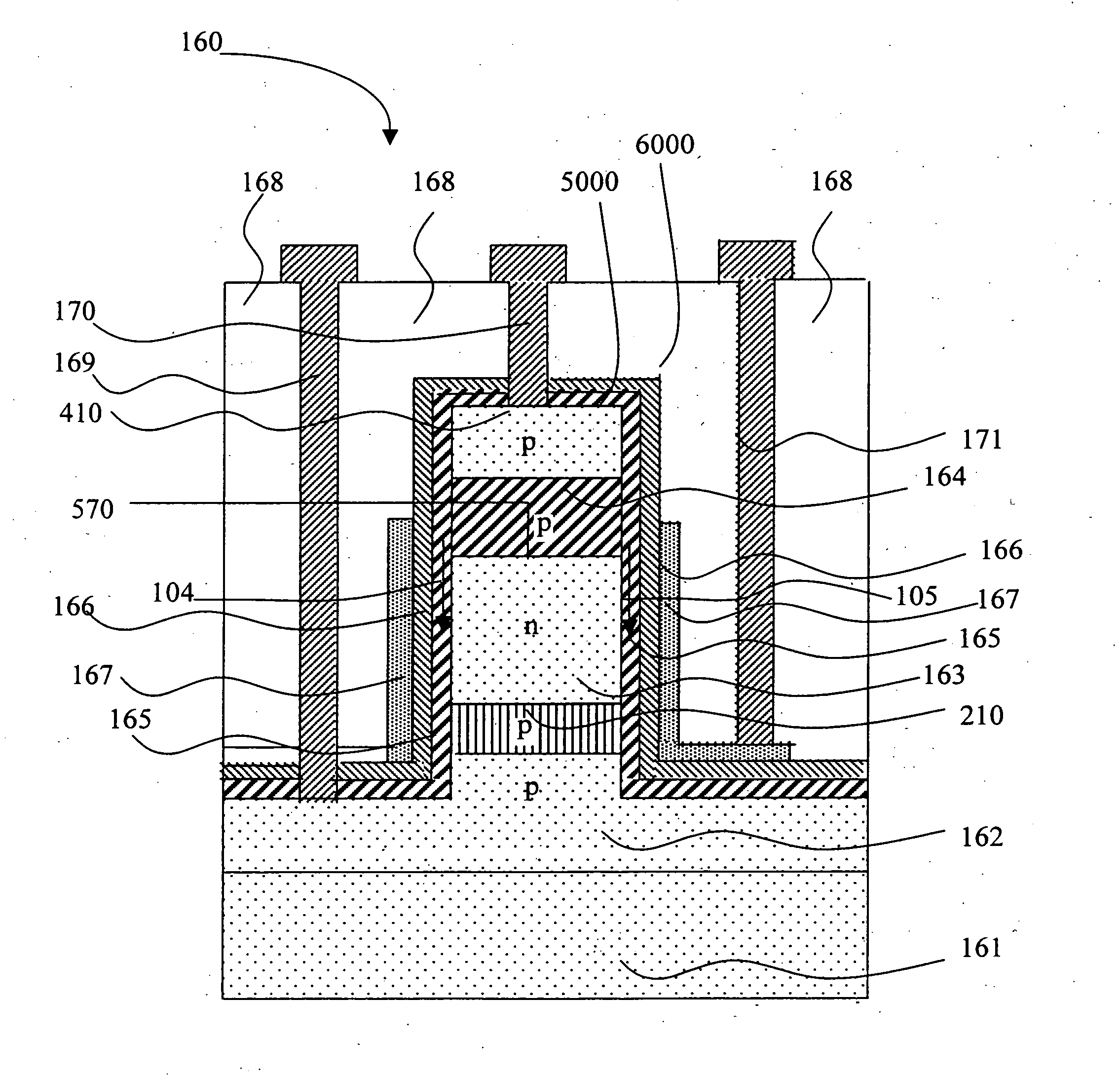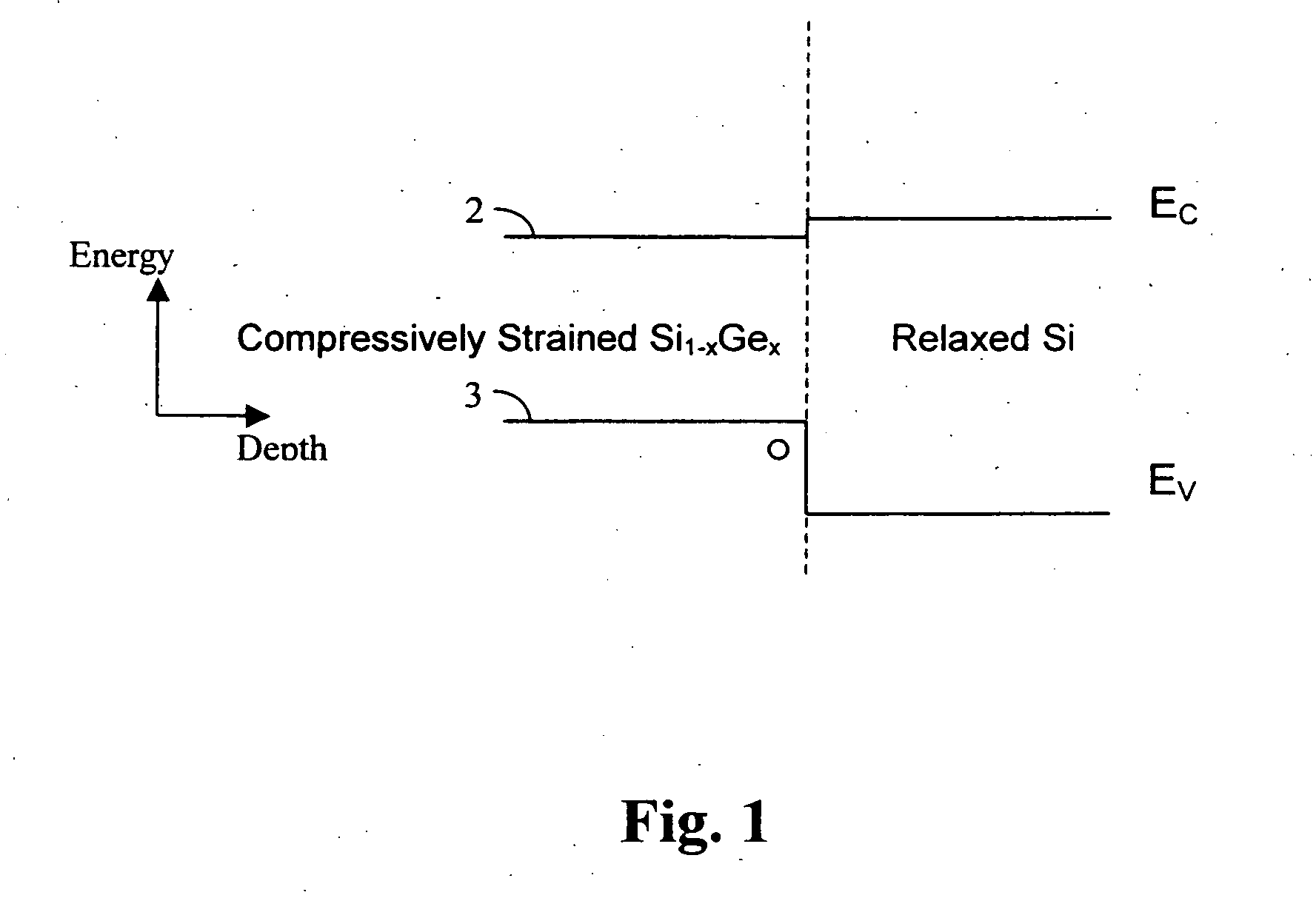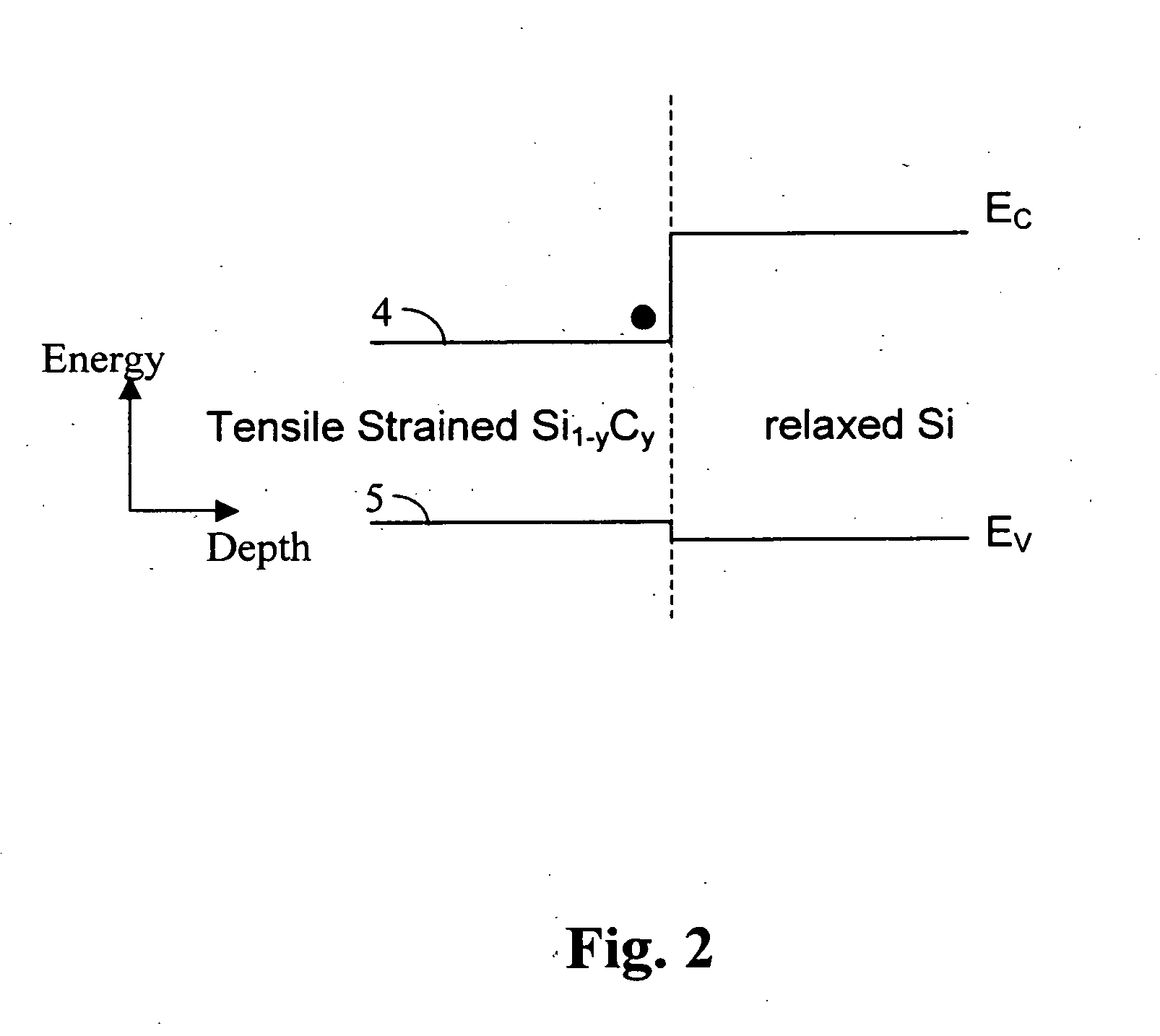Low leakage heterojunction vertical transistors and high performance devices thereof
- Summary
- Abstract
- Description
- Claims
- Application Information
AI Technical Summary
Benefits of technology
Problems solved by technology
Method used
Image
Examples
first embodiment
[0030]FIG. 4 shows the top view of a vertical device 160 (not to scale). FIG. 5 shows the cross sectional view of the first embodiment which is a compressively strained SiGeC vertical pMOSFET 160 comprising a vertical column 5000 comprising several layers or regions, such as a source layer or region 164, a body layer or region 163, and a drain layer or region 162, with a channel layer or region 165, an insulator layer or region 166, and a gate electrode layer or region 167 on the sidewalls. Vertical column or mesa 6000 forms vertical device 160. When SiGe layer or region 164 is highly strained, its critical thickness is rather small. The more strain in the layer, the thinner is the critical thickness at which the stained layer starts to relax. The critical thickness is understood in the art as a thicness where defects are generated within a layer or region to relieve its strain so that the layer or region relaxes towards its natural lattice spacing. The lattice spacing is determined...
second embodiment
[0083]FIG. 10 shows the vertical CMOS 362, similar to FIG. 9 except for the nMOSFET 374. The nMOSFET 374 has a tensile-strained silicon channel 65 built on a relaxed SiGe body 63. Body 63 is relaxed with respect to virtual substrate 62. The advantage of having tensile-strained silicon as the channel is the higher electron mobility. The mesa 3001 orientation is shown in FIG. 8B, where the p-channel is in the plane (110) and the n-channel is in the plane (100) for higher hole and electron mobilities.
[0084] A method of preparing an inverter made of the vertical field effect CMOS transistors is described comprising the steps of: [0085] forming a relaxed Si1-iGei epitaxial layer or region 62 on a first single crystalline substrate 61, doping the Si1-iGei epitaxial layer or region 62 n-type to a concentration level greater than 1×1019 atoms / cm3, [0086] forming a carbon-doped SiGe epitaxial layer or region 300 over the n-type Si1-iGei layer or region 62, doping the silicon epitaxial layer ...
PUM
 Login to View More
Login to View More Abstract
Description
Claims
Application Information
 Login to View More
Login to View More - R&D
- Intellectual Property
- Life Sciences
- Materials
- Tech Scout
- Unparalleled Data Quality
- Higher Quality Content
- 60% Fewer Hallucinations
Browse by: Latest US Patents, China's latest patents, Technical Efficacy Thesaurus, Application Domain, Technology Topic, Popular Technical Reports.
© 2025 PatSnap. All rights reserved.Legal|Privacy policy|Modern Slavery Act Transparency Statement|Sitemap|About US| Contact US: help@patsnap.com



